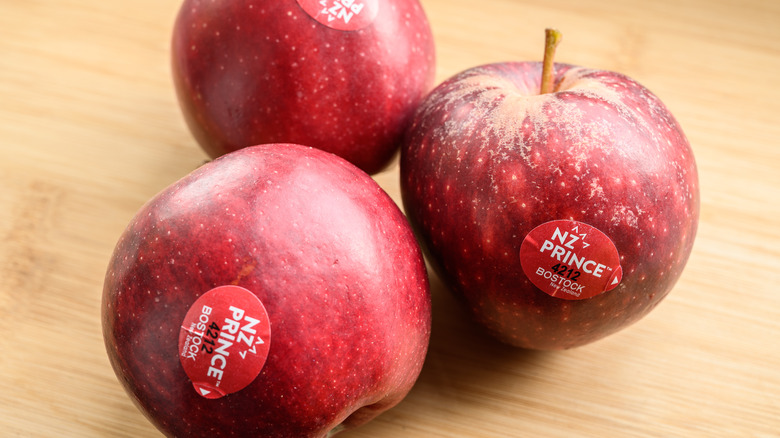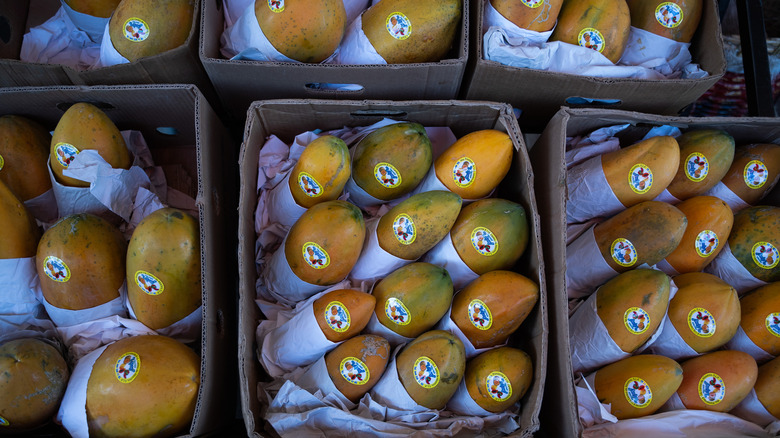Viral TikTok Reveals What The Tiny Stickers On Fruit Actually Mean
We've all bitten into an apple only to realize, just a little too late, that we forgot to remove the tiny sticker on the skin. The sticker may not be edible, but thankfully it's not harmful (via Modern Farmer). For a lot of fruit consumers, those tiny stickers are nothing more than a nuisance. For composting facilities, they can be a huge hassle, too, when they're left on the discarded skins of oranges or bananas. For grocery cashiers — at least for the newbies who haven't memorized everything — those stickers have an important role to play. The number on the sticker is the price look-up or PLU code. It enables the clerk to identify the fruit and apply the correct price when ringing you up.
But the numbers aren't just randomly assigned. They actually mean something, although buyers are warned not to take the numbers too seriously. TikTok user @tanner_lane, who devotes his account to food trivia, blew up with a video he posted on June 26 that explained the meaning of the fruit stickers. In the month since the video came out, it's been viewed more than 5 million times.
The stickers distinguish organic from conventional fruit, but they aren't required
As Tanner Lane explained on TikTok, a tiny fruit sticker with four digits starting with "4" has been sprayed with pesticides. A five-digit PLU code that starts with "8" means the fruit is genetically modified. Finally, a five-digit code starting with "9" tells you the fruit is organic. A lot of people in the comments said Tanner's explanation of the meaning of the little fruit stickers was "cap." Translating from Gen Z to Boomer, they thought Tanner was full of baloney. But various websites, including Trivia Happy and even the highly respected myth-buster Snopes, confirm much of this information.
There is an important catch that Snopes points out, however. Those little stickers are meant to convey information to store employees for pricing and inventory control — not to consumers. If the store doesn't care to distinguish between organic and conventionally grown melons, for example, they might have the same sticker on both. Consumer Reports also points out that you're not likely to see the "8" stickers, which represent genetically modified produce. Only a handful of fruits and veggies, such as corn, papaya, and soybeans, are genetically modified on a mass scale. And again, stores are not required to use the stickers to convey information to the customer. If a store is charging the same for GMO papaya and papaya the way nature intended it, chances are they'll have the same sticker.

